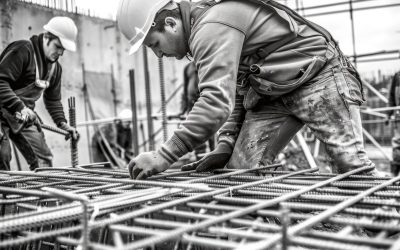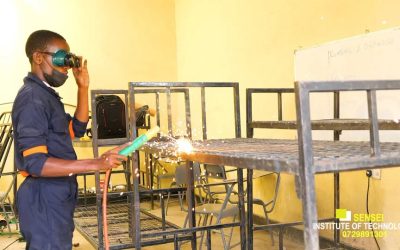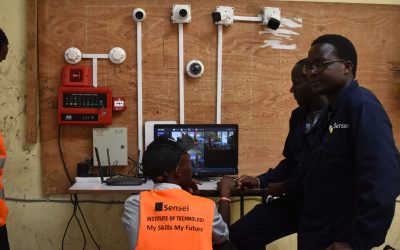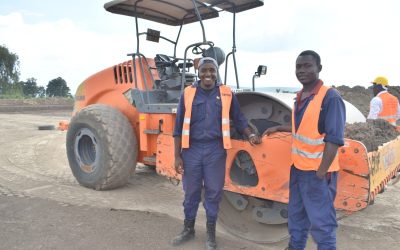From Classroom to Industry: Kenya’s CBC Gets Global Boost

CBC Kenya’s ongoing education reforms continue to attract international attention and collaboration. As the country prepares for the full rollout of the Competency-Based Curriculum (CBC) in secondary schools by 2026, Sensei Institute of Technology, in partnership with the Ministry of Education and other key education stakeholders, is taking a proactive step to ensure that learning leads to employability, enterprise, and national growth.
On 18th October 2025, Sensei Institute of Technology will host a Global Insights for Secondary Education Workshop at its Nakuru Campus (Barnabas), under the theme “Global Trends in Competence-Based Education: Global Sharing of Experiences from Korea, USA & Kenya.”
This workshop follows a successful session held earlier in Nairobi and will convene secondary school principals, career masters, county education officers, and policymakers to explore how international best practices can enhance Kenya’s CBC implementation.
Global Collaboration for Local Transformation
The workshop will feature experts from Korea and the United States — two nations renowned for aligning education systems with industrial and technological progress. Among the keynote speakers is Yura Oh, an international education specialist from Korea, who will share insights on how Korea’s education system became a cornerstone of its industrial transformation.
“Korea’s transformation was not by chance — it came from education that served industry,” said Yura Oh. “When teachers, policymakers, and industry work together, schools become engines of innovation. Kenya’s CBC has that same potential: to turn classrooms into the foundation of national industrial growth.”
Participants will explore how Korea’s model connects classroom learning to industrial production and how the U.S. approach to competency-based education fosters innovation and problem-solving — key elements that Kenya can integrate into its education reform journey.
Education as the Engine of Industrialisation
According to John Kang’ethe, Managing Director at Sensei Institute of Technology, the link between education and industry must be intentional if Kenya is to achieve sustainable economic growth.
“Kenya cannot industrialise without a generation ready to turn knowledge into production,” he explained. “Education must prepare learners not just for exams, but for enterprise — to build, to innovate, and to power Kenya’s industries. That is why Sensei is strengthening the bridge between secondary education, skills development, and the world of work.”
This vision aligns with Sensei Institute’s broader mission: to equip young people with practical skills that transform learning into productivity. Through partnerships with industry and global experts, Sensei is redefining what education means for the modern workforce — where technical proficiency, creativity, and innovation are equally valued.
Empowering Teachers, Empowering Learners
As Kenya transitions from exam-oriented to competence-based education, teachers remain the linchpin of success. The Teachers Service Commission (TSC) has been a vital partner in the CBC journey, ensuring that teachers are well-prepared to facilitate learning that nurtures skills, not just memorization.
Madam Victoria Muoka, TSC Regional Director, emphasized the importance of teacher empowerment:
“Teachers are at the centre of this transformation. By equipping them early, we ensure a smooth transition from secondary education to higher learning and employment.”
Workshops like this one provide a platform for educators to gain global exposure, exchange experiences, and adopt best practices that can transform Kenyan classrooms into hubs of innovation.
Why Competence-Based Education Matters
The Competency-Based Curriculum represents Kenya’s bold shift from traditional, exam-based learning to a model that prioritizes skills, creativity, and real-world problem-solving. It recognizes that employability and national industrial growth are built on the foundation of practical knowledge.
By integrating global insights, the upcoming workshop will:
- Enhance CBC implementation strategies in secondary schools.
- Strengthen linkages between education and industrial needs.
- Empower teachers with new pedagogical approaches.
- Inspire institutions to design learning experiences aligned with future job markets.
Ultimately, the event reflects Sensei Institute of Technology’s commitment to bridging the gap between education, employability, and industrialisation — ensuring that learners are not just job seekers but job creators and nation builders.
About Sensei Institute of Technology
Sensei Institute of Technology is a leading institution in Kenya’s education-to-employment ecosystem. With campuses across the country, Sensei delivers practical, industry-driven training that equips learners with skills for employment, enterprise, and innovation. Through global partnerships and real-world learning, Sensei is shaping a generation ready to build Kenya’s industrial future.






